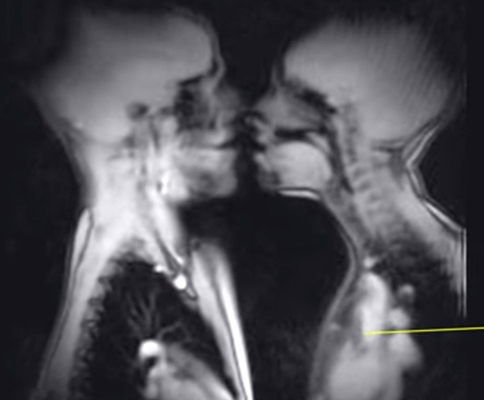Sexual Sciences help us understand ourselves better and create a just society.
Sex plays an important part in our social and personal lives. The scientific study of sex is important for reproductive health, our psychological well-being and society as a whole. Sex is something every group of people in the world has in common and plays a universal role in human life. It can cause some of the most intense feelings of physical and emotional pleasure that we will ever experience.
It is a raw form of self-expression and can consume us in a moment. This makes sex not only incredibly interesting to research, but also important – it changes and evolves just like humans do.
Most sexologists would credit the beginning of sexual research to Alfred Kinsey in 1948, but in fact the study of sexuality formally began in Weimar Germany in 1919.
The Institut für Sexualwissenschaft was an early private sexology research institute in Germany from 1919 to 1933.
The Institute was a non-profit foundation headed by Magnus Hirschfeld. Since 1897 he had run the Wissenschaftlich-humanitäres Komitee (“Scientific-Humanitarian Committee”), which campaigned on conservative and rational grounds for gay rights and tolerance. The Committee published the long-running journal Jahrbuch für sexuelle Zwischenstufen. Hirschfeld was also a researcher; he collected questionnaires from 10,000 people, informing his book Die Homosexualität des Mannes und des Weibes (“The Homosexuality of Man and Woman”, 1914). He built a unique library on same-sex love and eroticism.
After the Nazis gained control of Germany in the 1930s, the institute and its libraries were destroyed as part of a Nazi government censorship program by youth brigades, who burned its books and documents publicly.
In the United States, William H. Masters and Virginia E. Johnson began studying human sexuality in 1957.
Marilyn Fithian, along with colleague and longtime companion William E. Hartman, founded the Center for Marital and Sexual Studies in Long Beach, where they conducted research and treated people with sexual problems. They wrote a well-regarded text for sex therapists, “Treatment of Sexual Dysfunction” (1972), that is often cited for its down-to-earth approach and detailed explanation of therapeutic techniques.
She and Hartman, who died in 1997, were sometimes described as the Masters and Johnson of the West Coast, whose contributions to their field were considered as important as those of Alfred Kinsey and the team of William Masters and Virginia Johnson.
“They helped legitimize and de-stigmatize sex research,” said professor Eli Coleman, a past president of the Society for the Scientific Study of Sexuality and director of the human sexuality program at the University of Minnesota. He described their book on sexual dysfunction as one of the most important in the field during the 1970s, along with Masters and Johnson’s landmark work “Human Sexual Response.”
Sex is important to research for a number of reasons. The study of reproductive health is beneficial to anyone planning on having a child, those looking for a contraceptive that fits their lifestyle, those looking to terminate a pregnancy for health-related or practical reasons and more. This kind of support can be provided through biological as well as psychological studies.
Most importantly, the scientific study of sexuality can have moral and ethical consequences which serve to de-stigmatize sexual expression and help create a more just society. As stated by renowned theoretical physicist and public intellectual Professor Lawrence Krauss during debate with christian apologist William Lane Craig, because of science “women are equal to men, we don’t hate gays…and the facts of science force us to take responsibility for the welfare of ourselves, our species and our planet.”
Sex can be fun, awkward, passionate, bad and so much more. Studying sexuality scientifically frees us from the dogmas of repressive beliefs and governmental or institutionalized oppression, and makes room for all human beings to express sexuality freely.
“Sex is kicking death in the ass while singing.” – Charles Burkowski
-Dr. Victoria




